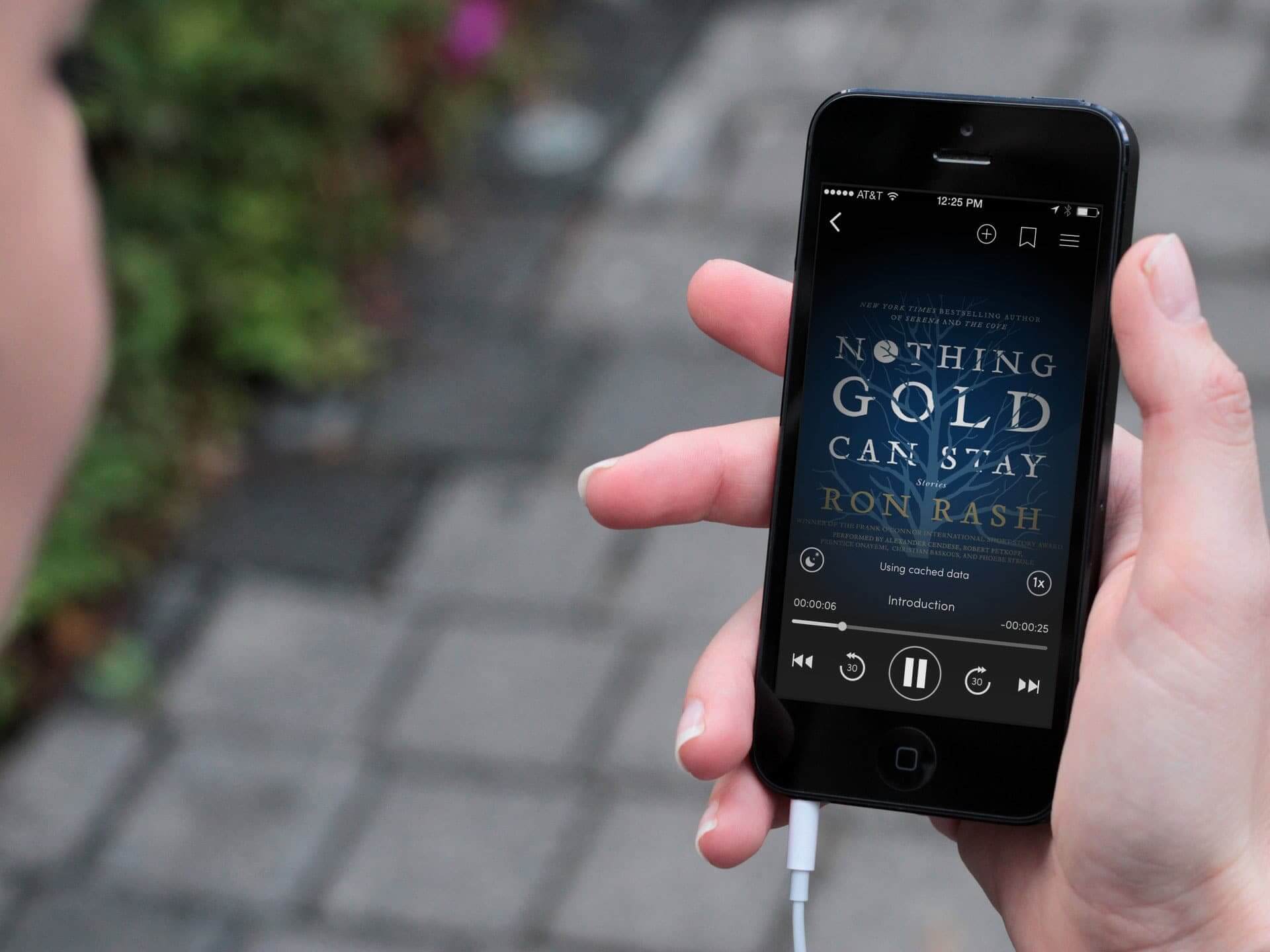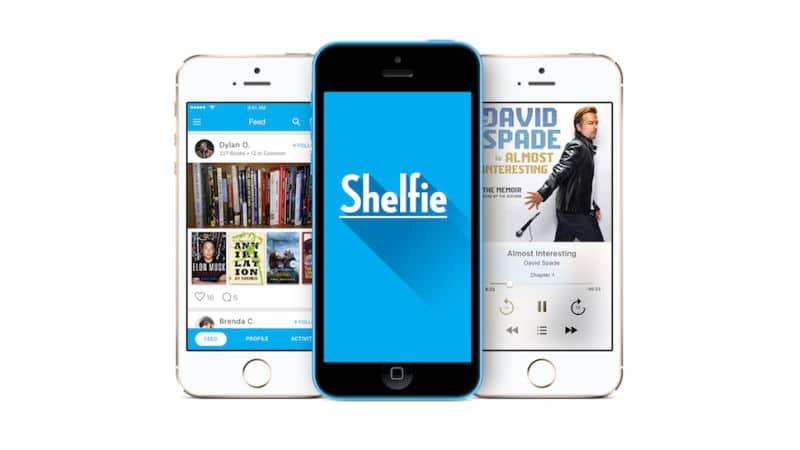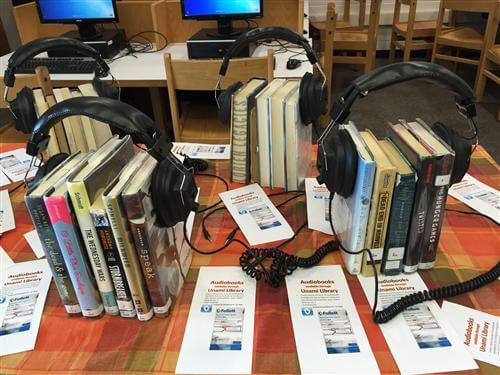

Audiobooks are the fastest growing segment in publishing and everyone within the industry is very bullish about the future of the format. There are a number of new start-ups that are making waves and retailers are beginning to release that audiobooks are worth investing in.
The global audiobook industry is currently evaluated at 2.8 billion dollars and this is primarily due to the sheer amount of new titles that were produced in 2015. 43,000 new audiobooks were released this year, which is a slight increase from the 36,000 that came out in 2014 and a far cry from the 20,000 that were issued in 2013.
According to a recent report by the American Association of publishers downloaded audio had the highest growth in the first eight months of 2015. The number of audiobooks sold increased 43.3% in August, compared to August 2014. This brings the year-to-date growth for this format to 37.8%, compared to the same timeframe in 2014.
Since the industry is generating so much revenue many companies that specialize in statistics are beginning to pay attention. For the first time audiobook and audiobook subscription services are being tracked by Nielsen StatShot. 20 publishers proclaimed that the subscription model for audiobooks are actually proving to be more lucrative than e-Books. Approximately 3.88 million audiobooks were downloaded in 2015 compared to the 2.47 million eBooks that were read.
New Digital Distribution Models


Publishers are willing to experiment with different models for audiobook distribution because they don’t abide by the same agency model that applies to e-books. Companies like Blackstone Audio, Gildan Media, Hachette Audio, HarperAudio, and Naxos Audiobooks have all committed themselves to audiobook subscription services and bundling.
Scholastic is one company that has been at the forefront of embracing alternative distribution methods and are willing to take risks. The company currently has over 400 audiobook titles, which is an overall increase by 32% over 2014. One of the big reasons why their catalog has grown is because production costs have decreased by over 50% since 2009.The audio editions that have proven to be the most popular in 2015 were movie driven titles such as the Hunger Games and Goosebumps series.
Linda Lee, VP, Publisher Scholastic Audio told me that “The traditional audio customer will find your titles wherever you offer them, however, many of these non-traditional distribution models are targeted to the non-traditional audio user and/or customers who have never listened to an audiobook before. The hope is that through a subscription or bundling model, a non-audio user will be enticed to try and audio and become a convert. Additionally, these types of models offer the chance to ‘sample’ your product – I.e. Offering the first few titles in a series – hoping to hook the customer, who will then go to a more traditional full price model to find subsequent titles in the series once they are hooked. ”
The Audiobook Subscription model


It is hard to have a conversation about companies involved in the unlimited audiobook space and not talk about Amazon. Their Kindle Unlimited platform features over 2,500 audiobooks, which is fairly paltry compared to their competition, but they have made it work.
Kindle Unlimited has only been available for a full year, but the company already commands the largest market share. A survey report from Peter Hildick-Smith’s Codex Group confirmed they have more subscribers than any other company.
The report also showed that Amazon’s subscriber base grew by 10% between November 2014 and April 2015, while the customer base of its smaller competitors fell by an average of 30% over the same period.
Scribd originally launched as a document sharing service almost a decade ago and was one of the first companies that got into the unlimited e-book subscription space. In 2014 the company got bullish about audiobooks and they ironed out an agreement with Findaway to include over 30,000 titles. They expanded their catalog in April of 2015 when they started dealing directly with major publishers.
VP of Content Acquisition Andrew Weinstein. said that in Scribd’s first year of offering audiobooks, users logged more than 270,000 hours using the companies apps for Android and iOS.
The big problem with Scribd is that their audiobook program was too popular and it failed to generate a profit. This prompted them to pivot from unlimited listening plan to allowing their subscribers to access to a single audiobook title every month and if they wanted to listen to more, they had to pay extra.
“Our goal is to connect readers to books in a meaningful and sustainable way,” said Andrew Weinstein in an exclusive interview with Good e-Reader. “We forged new ground when we created Scribd, and innovation often requires iteration. We made adjustments to our business model in order to ensure we could continue to deliver a great value to our subscribers and be a long-term partner to publishers.”
“When we launched the Scribd subscription service, we were entering uncharted waters, and we bore the risk with the contract terms.Two years in, we’ve proven that there is true consumer demand for a reading subscription service. Likewise, we’ve shown that Scribd is a strong partner to publishers. We are open to future iterations of the model provided we reach terms with publishers that are both fair to their authors and Scribd.” she said.
Playster is the newest entrant in the US market that has just launched a new unlimited service. Unlike their contemporaries they have numerous tiers that give you access to e-books or audiobooks, or you can sign up for their premium package and get access to everything. Their catalog currently features 250,000 e-Books, and more than 60,000 audiobooks.
The CEO of Playster Phil Keezer told Good e-Reader why his company got involved in audiobooks in the first place “Audiobooks were always appealing to us, but we were further buoyed by the fact other subscription services had begun to introduce credit systems for audiobooks. This provided an opportunity for us to give our members a better deal than they’d get elsewhere.” He went on to say “The popularity of audiobooks has seen a tremendous growth over the past couple of years, due to how great they are for multi-taskers. Audiobooks have become the soundtrack to people’s activities. In the past year it seems more and more books have been getting audiobook counterparts.
In order for audiobooks to grow further in 2016 Phil had some interesting thoughts “It would be great to see bigger name actors and narrators with larger followings – I think this will help audiobooks to grow further. Better production value will also help to blur the lines between audiobooks and other media types such as movies and music, which is hugely exciting. Audiobooks have the potential for great achievements within the next year, and it’s great that they’re already getting recognition through awards and accreditations.”
“New features could also make audiobooks more immersive. Synchronization between audiobooks and their e-book counterparts is one example that we’re already seeing, and in the future we could even have listeners choosing their own endings using spoken feedback. Audiobooks with animated qualities tend to be very successful, and while we don’t believe these bells and whistles are always necessary, they will certainly help to make the medium more powerful.”
Audiobooks.com does not have an unlimited subscription model but they have been in the business for a really long time. This has afforded them a unique prospective on the inner workings of the industry and recently GM Ian Small sat down with Good e-Reader for an exclusive interview. “I’m a big champion of the unlimited audiobook model. There are many stakeholders involved with audiobooks – Authors, narrators, publishers, customers, and retailers so it’s going to take some time (and obviously trial and error) to find a model that works for all parties involved. But it is becoming more commonplace for the consumer to enjoy their digital media in this capacity. There are perceptions of other industries that are currently using the “all you can eat” model and that it has not worked out favorably for all parties involved (see the music studios). So I understand the reluctance to completely dive in and deviate from existing retail models. It’s going to take some time and a little tweaking to get it right for audiobooks.”
Ian than alluded to his company’s future plans in the subscription audiobook space “We’re trying to find a model that can expand the market and lower the barrier for consumers to enjoy audiobooks while trying to avoid mistakes that have happened in other markets and their rights holders. It’s a learning process (albeit an expensive one) to figure out what doesn’t work, and then build on what does.”
I think the concept of subscription audiobooks will be slowly refined in 2016, companies like Findaway are looking to limit the amount of risk that retailers. I have heard they are going to be developing new tools and features that will monitor budgets and insure that companies will not spend more than they are financially able.
In this audiobook trends and analysis report I have made reference or will make reference to a company named Findaway. This is likely the largest company involved in the audiobook sector with a catalog of over 100,000 titles and they deal with over 200 publishers. They do not sell audio content directly to consumers, but they offer a powerful API system that retailers all over the world employ to sell audiobooks directly to users, your local library or non-conventional distribution models such as bundling or unlimited subscriptions. You might not heard of them, but their client list is very extensive. Findaway powers the collections of Scribd, Playster, BITLIT, Baker and Taylor, 3M, Nook Audiobooks, TuneIn and hundreds of other companies. I think it is in Findaway’s best interest to keep their customers successful and develop all of the tools that are need to keep the unlimited subscription model totally viable.
I spoke with the VP of digital content Ralph Lazaro and he alluded that people involved in the subscription space should look to the Netflix model in order to be successful. Netflix does not have every new movie that comes out, but provides enough new content that it draws in new subscribers. Once they have watched a few new movies, they will likely binge watch older movies or television episodes.
What Netflix is doing is very applicable to subscription audiobooks. You don’t need every new front-list title that comes out, because the costs are very prohibitive and if someone subscribes and listens to three or four of them, you have actually lost money. The trick is to add enough new content so you can be fresh and current and encourage users to consume royalty free and backlist audiobooks, which are more affordable to the retailers.
Bundling


Retailers and publishers have been talking for years about trying to bundle print or digital books with an audiobook. If you own something, shouldn’t you be able to get the audio edition at a cheaper price? Few were willing to be the first to market with a concept like this, but then Vancouver BITLIT hit the scene, and everything changed.
BITLIT announced in late 2015 that they have come to terms with a new business deal with Findaway, the largest provider of audiobooks. BITLIT has an app called Shelfie that allows people to take a picture of their bookshelves and it produces a detailed list of what books you own that are eligible to get an audio upgrade. I have heard that that 35% of all audiobooks that are compatible are 100% free and the rest are severely discounted so you won’t pay the same price as you normally would with iTunes or Audible.
The CEO of BITLIT Peter Hudson sees adding audiobooks as “yet another way to further our mission of promoting reading freedom across formats – allowing readers to access the stories they’ve bought whenever and however they choose.”
It is too soon to tell whether this model will be prove to be successful with customers, but it is a completely sound revenue model for BITLIT and one that will likely be emulated in other markets.
Libraries


One of the big cornerstones of audiobook sales have always derived from the public library. Tapes and CD’s used to be sourced by a multitude of distributors, but collection managers have an easier time in this digital world we live in.
Audiobooks have grown significantly year on year in the library sector because they do not have the same metered access that e-books do. When library collection managers purchase an audiobook, they do not expire after a certain number of checkouts nor do they have buy them again after one year.
There hasn’t been much innovation in the library sector and there hasn’t been many startups that are helping the audiobook discovery process or developing new tools to make better sense of big data. I remember when the e-book industry was first taking off in 2010 to 2013, you couldn’t go a week without hearing about a new company that was looking to disrupt the e-book industry.
The most disruptive company currently operating in the digital audiobook space for libraries is Hoopla by Midwest Tape. They abide by the Demand-Driven Acquisition concept, which opens up their catalog to libraries and the libraries only pay Hoopla when a patron checkouts a specific audiobook. There are numerous backend tools that libraries can establish a specific monetary threshold, so they can setup a budget and insure that they are not overspending.
Customers have been responding to the Hoopla audiobook concept. There were 630,000 borrows in 2014 and this year they are eclipsing north of 3 million. What is surprising is that their catalog of content is fairly modest. In 2014 they only had 12,000 digital titles and in 2015 they had over 21,000. Hoopla is predicting that by the end of 2016 they should be able to offer over 30,000 different audiobooks.
3M, Baker and Taylor, Hoopla and Recorded Books some of the major players involved in the library sector and they source the vast majority of their titles through various distributors, most notable Findaway. There is one company though that has been blazing their trail since the very beginning of digital audio, Overdrive.
Overdrive has built their own audiobook ecosystem by establishing relationships directly with publishers and distributors, instead of leaning on 3rd parties. They own the platform and this puts them in a very unique position in the marketplace to be able to determine their own fate.
In 2014 the Overdrive catalog featured 60,000 audio titles from over 100 different publishes. Users are very engaged with the format and Overdrive reported that worldwide listening totals were over 32 million. Overdrive also reported that digital audiobook circulation in 2015 was 43 million (+36% growth over 2014).
David Burleigh is the director of marketing director and communications at Overdrive. He is very bullish about the format and the number of loans that have occurred during 2015 and thinks 2016 will be a banner year.
“Unlike e-books, audiobooks do not require the same type of time investment”, he said. “I have heard many reports of people listening to audiobooks they borrowed from the library while commuting to work or during a lengthy rehab process.”
Overdrive is going to be releasing some new features for their audiobook and e-book catalog in 2016, called Insight. This is a new tool that was developed that has collection managers in mind. It provides real time analytics, circulation data and how effective their self-assembled collections are faring. It will be able to demonstrate what audiobooks are proving to be popular or what genres are emerging. Unlike tapes and CD’s, digital audiobooks are delivered to the library within an hour of ordering, so Insights will allow specific branches to capitalize more on seasonal trends and when new movies based on books come out.
Audio Narrators are in high demand


Audiobooks are becoming big business for publishers and many of them are offering lucrative financial arrangements to narrators.
Jim Dale is a narrator who is in very high demand after creating an astounding 134 different voices for the Harry Potter books — a performance that spans all seven volumes and earned him more accolades than any other audiobook narrator in history. Dexterous as he is in reading Rowling’s analects, he’s equally spellbinding in his renditions of English classics (Dickens, Verne, Barrie) — although he only created a puny 42 voices for his 2003 reading of A Christmas Carol.
Stephen Fry is one of the best narrators in the world and his rendition of the all seven Harry Potter books for the United Kingdom have been heralded as of the best audio performances of all time. Many people are actually lamenting that his recordings are not really available anywhere else.
In late 2015 Fry signed a major deal with Amazon owned Audible to voice the The Coin of Dionysius and The Game Played in the Dark by Ernest Bramah, which features the blind detective Max Carrados who was first introduced to the literary world in 1914. Fry said: “I love reading stories aloud. If I had my way, I think I would do it more often… I don’t do it enough. I feel sometimes it was what I was put on this Earth to do. I just find it so pleasurable.”
Audible has an extensive track record of relying on star power to make their audiobooks more appealing and to garner public. Matthew Thornton the VP of communications of Audible explained – “One of the ways we’ve worked to improve the overall customer experience of listening to audiobooks is in elevating the quality of audiobook performance—embracing A-List celebrities (among those who’ve recorded for Audible are Colin Firth, Dustin Hoffman, Jake Gyllenhaal, Kate Winslet and Susan Sarandon) as well as up-and-coming young actors at Juilliard, Yale, Stella Adler and other acting schools where Audible offers narration workshops. We’ve had great success with celebrity-narrated projects like the Gyllenhaal-narrated The Great Gatsby, Ben Stiller performing The Secret Life of Walter Mitty. As importantly, high-profile narrators raise the visibility of these terrific listening experiences—something we liken to “theater in your ear”—and raise the visibility of this burgeoning art form.”
Self-Publishing an Audiobook is a little bit more viable


Audiobook narration is becoming a very in-demand thing in the industry and nowhere is this more evident than in one of the only self-publishing services that exists, the Audible Creation Exchange.
Publishers and authors who own unused audiobook rights can post them on ACX, along with narration preferences (e.g., narrator’s gender, accents, voice types). Audio publishers and audio studios—as well as individual narrators with home studios—can search for titles that interest them and then audition to turn those rights into audiobooks. Rights holders can hire a narrator or producer, or create entrepreneurial partnerships with shared royalty structures that allow audiobooks to be produced without upfront costs. Alternatively, existing audio publishers can simply use ACX to discover audio rights to produce on their own.
There has been a huge influx for self-published authors who are using the Exchange to self-publish their own audiobooks and distribute them via Audible, iTunes and even sell on their own websites. This is creating plenty of opportunity for people who want to break into the audio publishing industry, from narrators to sound engineers.
Audible has dominated audiobook self-publishing for a number of years, but it might see some competition from the new Audiobooks.com initiative Author’s Republic, an aggregate audio publisher helping to bring independently published audiobooks onto more platforms than ever before. It will submit your titles to over a dozen merchants including Audiobooks.com, Audible, iTunes, Amazon, Barnes & Noble, Scribd, Downpour, and Tunein, as well as library providers like Findaway and Overdrive.
Authors who want to make an audio edition of their e-book will quit enamored with the royalty rates. On most platforms, authors will receive an average of 35% of what their titles are sold for. Authors selling their titles through Audible, iTunes and Amazon will receive 25% of what their book is sold for on those platforms, a rate that matches the royalty rate offered through ACX for titles sold non-exclusively.
Author’s Republic will appeal strongly to international authors and publishers who are often excluded from similar distribution services based on regional restrictions. Author’s Republic offers a “back-door” for international authors to bring their audiobooks to the sizeable North American market.
Other stand-out features include the ability to set an MSRP (manufacturer’s suggested retail price), easy monthly royalty payments sent through PayPal, and free ISBNs for any audiobooks submitted through the service.
Some people are bypassing existing self-publishing systems altogether and doing their own thing. Andrew Peterson belongs to a traditional publisher and found that they were not willing to make an audiobook version of his book, because he was a debut author. He used his own money to hire his favorite audiobook narrator Dick Hill, who may be best known as the voice of Jack Reacher in Lee Child’s best-selling series, to provide the track for the audio version of his debut novel, First to Kill. The audiobook is now selling more copies than his e-book.
The largest problem right now in self-publishing audio is that unless you live in the USA, there are not many viable options. Indie authors who want to distribute and sell an e-book have hundreds of viable options. Every major online bookseller such as Amazon, B&N and Kobo all have their own portals to submit content and sell it worldwide.
Indie authors are facing insurmountable challenges when they want to generate an audiobook of their novel. Unlike writing a book, it is very hard to create and distribute an audio edition by themselves.
Some authors want to narrate their own books and submit it to various online retailers by themselves, after all they wrote the book themselves, how hard can it be?
The stark truth is that making an audiobook goes far beyond investing in a microphone and mixing board. For example, the sound must be consistent. Why? Consistency in audio levels, tone, noise level, spacing, and pronunciation helps give the listener a great experience. Drastic changes can be jarring and are not in keeping with a professional production. Extreme fluctuations in volume means the listener will have to keep a hand on the volume control of their listening device. This detracts from the listening experience and may lead to poor reviews and reduced sales.
An audiobook needs opening and closing credits which state the title of the book, the authors name and the publisher. The end credits merely need to say the end. The final product also needs a sample between 1 and 5 minutes in order to give a prospective listener a taste of what’s to come.
If you want to submit your audiobook to Audible, Apple or Amazon and are doing it yourself, things get even more advanced. You have to record your books in segments, chapter by chapter. You simply can’t record one file that is 4 hours. Each uploaded file must have between 0.5 and 1 second of room tone at the head, and between 1 and 5 seconds of room tone at the tail. Each uploaded file must be free of extraneous sounds such as plosives, mic pops, mouse clicks, excessive mouth noise, and outtakes. Each uploaded file must measure between -23dB and -18dB RMS. Each uploaded file must have peak values no higher than -3dB. Each uploaded file must have a noise floor no higher than -60dB RMS. Finally each file must be 44.1 kHz and each file no larger than 170MB.
If you don’t know what any of the above actually means? Chances are you won’t be able to record the audiobook yourself and instead must lean on a professional.
As I have demonstrated, unless you live in the United States, self-publishing an audiobook is certainly not very easy and there is plenty room in the market for new companies to offer new ideas and business concepts. I think in 2016 we will see new startups emerge to assist authors all over the world to self-publish and distribute your audio works.
The International Audiobook Market


Many of the industry experts I spoke with are all predicting that Spanish language audiobooks will be a big thing in 2016. There were only 300 audio titles that were produced in Latin America and this is attracting the publishing industry that wants to do more translations to market into countries such as Mexico, Spain and South America.
Scandinavia is one burgeoning market with only 500 digital titles available and 50-100 will be produced in 2016. This is creating an opportunity for local companies to start early and grow organically. Some notable entrants in the field are Nextory, and Fabula, who both have made unlimited audiobooks work and maintain a healthy profit.
The largest audiobook company in Scandinavia is operating out of Sweden and they are called Storytel. The company has been running an unlimited service for almost 10 years, but it is only since 2010 with the advent of the iPhone and other smartphones that they started to attract more paid subscribers to their platform.
Storytel Founder and CEO Jonas Tellander said that said they currently have 200,000 paid subscribers in Sweden, Norway, Denmark and the Netherlands.
“In 2015 our customers listened to 4 million audiobooks from a catalog of approximately 3’500 Swedish audiobooks, 4’000 Danish audiobooks, 2’000 Norwegian audiobooks and 1’500 Dutch audiobooks. In addition to 20’000 English audiobooks, which represents a mere single digit-% of total listening. We also offer our customers e-books, but audiobook listening represent 95% of total reading.”
Germany is one of the largest audiobook markets in the world. 25,000 titles from 400 publishers are available. Each year there are between 700 to 800 new audiobooks being produced and customers are responding in a big way. In the last twelve months, close to five million customers have purchased an audiobook, which accounts for 7% of the overall population. This medium is so popular that last summer, 20,000 Germans filled a Berlin stadium just to listen to the most popular audiobook series being read aloud.
Audiobook sales in Germany are actually doing better than e-books, but there is one company that is capitalizing on it the most, it is Amazon owned Audible.
The success of Audible is inuring the ire of the German Booksellers Association who just filed a petition to the European Commission whose primary grief was that Amazon is stiffing local companies from entering the market. Alexander Skipis, the head of the German Book Trade body, said: “The business model of Amazon and Audible is aimed at destroying the excellent book trade structure in Germany. These companies are avowedly on the way to establish a monopoly.” He went on to say that Audibles dominant market position to force publishers to accept “unreasonable conditions.”
I think in Germany you will likely see a number of well financed startups enter the audiobook industry in 2016 because this market needs more homegrown companies to compete against Amazon and various bookseller associations need a poster child to prop up on a pedestal. This is similarl to how the Tolino Alliance was established to compete against Amazon in the e-book arena.
Podcasting and Newspapers


In 2015 one of the big new trends in audio production has been making audio editions of featured stories. Many of the top newspaper companies are producing very compelling mini-audiobooks that read the story aloud and they also employ expanded commentary. The Guardian does the best job in this regards, but everyone is now doing this.
One of the pitfalls is that these newspaper companies primarily deliver their content via the internet browser. I surmise that one of the big growth opportunities is for these companies to develop their own audio player apps that only read the stories aloud to the readers, therefore making them more accessible to people who have vision disorders.
You might be living under a rock if you don’t know how large podcasting has become in recent years. There were over 2.6 billion downloads in 2014 and over the course of 2015 podcasts were listed to over 4 billion times. Edison Research reported that fully one-third of all Americans 12 years of age or older now say they have listened to at least one podcast.
Podcasts command the captive attention of their audiences like few other media. An endorsement coming straight from the mouth of a trusted podcast host feels intimate and authentic. And it’s much harder to click away to another screen or channel surf while you listen.
One of the largest Podcasting networks is Apple iTunes, but it only lists 16 categories, which makes it hard to discover emerging content. One of the pitfalls is that no one’s measuring exactly how many exist, most estimates suggest somewhere around 180,000 are currently active.
One of the big growth segments are podcasts that cater towards book discovery and being able to assist you with finding out about new authors. Here are some of the best book podcasters of the year.
Overdrive Book Nerds – Overdrive Analysts read a ridiculous amount of books on a regular basis, to the point that they often joke that their official title should be Professional Book Nerds. This is the concept behind the new Podcast from Overdrive. Each episode features three different people who work at the company and that talk about new books and give some updates on what the company is doing.
Overdue – This is a great podcast done by the senior Products Editor at Ars Technica and an Education Director at Lantern Theater Company. Overdue is simply fantastic! It’s refreshing to finally have a bookish podcast that discusses literature intelligently and has a sense of humor.
Goosebuds – This is a podcast done by three guys who dig into the Young Adult Literature worlds of R.L. Stine and give them the deep critique and respect they deserve. Its is out of control hilarious.
Books on a Nightstand – This is a podcast done by two people who work at Penguin Random House. They provide great book recommendations, as well as a behind-the-scenes look at the world of books, bookstores and publishing.
Book Riot – They have a bunch of different podcasts, but I am partial to Reading Lives where authors come on and talk about the books that got them into reading and inspire them. All the Books the hostess expresses her love for books in wacky ways: I loved this book so much it made me want to claw off my face in joy.
Geeks Guide to the Galaxy – Lots of interviews with authors and the host is great as he knows the show isn’t about him and doesn’t try and be a drivetime radio host like so many do.
Sword and Laser – This is a science fiction and fantasy-themed book club, video show and podcast, started by Veronica Belmont and Tom Merritt. The main goal of the club is to build a strong online community of sci-fi / fantasy buffs, and to discuss and enjoy books of both genres.
The Digested Read – John Crace of the Guardian does a series of short podcasts where he talks about one new book coming out in about 500 words.
Smart Bitches Trashy Books – Not updated nearly enough, but this podcast tends to interview debut authors and talk about their life and books.
Where to listen to digital audiobooks?
Your Local Library
Public Domain Audiobooks
- Librivox (free public domain recordings of public domain works)
- Podiobooks (free/tipjar serialized audiobooks)
- Lit2Go (recordings of public domain works, available on iTunesU and as chapter-long mp3s)
Publisher Direct:
Online Retailers:
Europe
Audiobook Trends for 2016


The Audiobook industry is growing at the same rate as e-books did from 2011 to 2013. Every major publisher are ramping up production trying to get more titles out the door and into the ears of eager listeners. This is creating a new opportunity for young people to break into the industry, whether it’s being a professional voice actor or just learning how to construct an audiobook on a production level. I think audiobooks might be a viable career path for many young people graduating film schools or private audio engineering schools, instead of just working in the music industry.
There are plenty of growth opportunities for companies looking to take advantage of this space. One of the most notable examples is audiobook discovery. There simply are not a lot of review websites that specialize in letting you know what new ones are worth listening to and what classics have been done by really good narrators. The average customer only knows what the front-page of Audible says is good or their local library. There needs to be significant investment in helping people discover great new content and blacklist titles.
On the same token, there needs to be more big data being done to monitor sales and analytics in the audiobook industry. The Author Earnings Website is doing an amazing job at letting everyone know how trade and indie e-books are doing, but nobody is doing this with audiobooks.
Hundreds of users have emailed me this year asking about self-publishing an audiobook when they live in Canada, India, Australia or the Netherlands. Sadly, there are not many viable options right now unless you do everything yourself. It requires investment in a good mixing board, a condenser mic and understanding how an audiobook is actually constructed. I think there is a huge opportunity for someone to create a marketplace, similar to ACX that specializes in international audiobook distribution. I also think specific markets like Germany, which is the audiobook capital of Europe to create a localized Exchange so audiobooks could be created and distributed within that country to retailers such as Thalia.
Likely one of the biggest audiobook segments in 2016 will be the automotive industry. Many companies are trying to establish relationships with big companies like GM to make connected cars work and get audiobooks happening with either Apple Carplay, Android Auto or via apps. In late 2015 Honda released a new Road Readers program, which provides a number of free audiobooks and a large selection of paid content to any and all Honda owners.
Here is how the program works. Any Honda owner can easily access the Honda Road Readers program. First, owners visit the official website of the program www.hondaroadreaders.com and register. Owners will then be directed to download the Honda Road Readers app in the Apple or Android store. Next, owners will either scan or key in their 17-character vehicle identification number (VIN). Honda owners will have access to five free audiobooks per Honda VIN aimed at children 5 to 16 years old for one year, the first being J. M. Barrie’s classic Peter Pan and followed by four other titles of their choice.
Michael Kozlowski is the editor-in-chief at Good e-Reader and has written about audiobooks and e-readers for the past fifteen years. Newspapers and websites such as the CBC, CNET, Engadget, Huffington Post and the New York Times have picked up his articles. He Lives in Vancouver, British Columbia, Canada.

